AgriTech.
Magic beans for UK farmers?
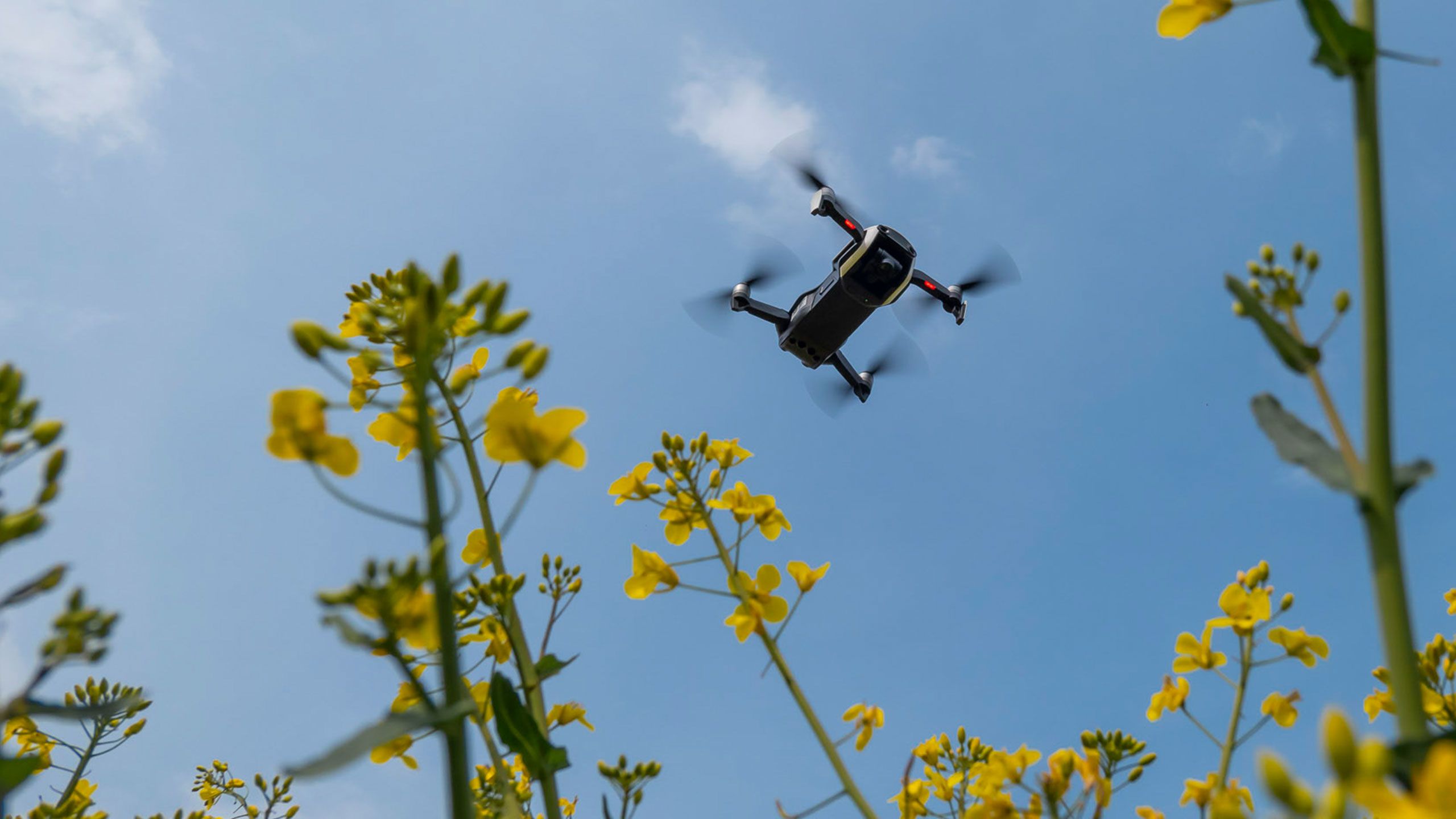
The challenges currently facing the UK’s agricultural sector are both numerous and well-documented.
A continued squeeze on profit margins, the labour shortages caused by the combo of Covid and Brexit, climate change affecting the already unpredictable British weather… it’s clear that some adaptation, if not a full-blown transformation, is called for.
AgriTech is one of many solutions. As far back as 2013, the UK Government partnered with the industry to develop a long-term AgriTech strategy with the aim of ‘translating the knowledge and insight from the UK’s world-leading science base into benefits for society and the economy at home and abroad’. The timing is right, too: in the current capital-rich environment there are plenty of funds and investors excited about backing AgriTech.
"AgriTech is an incredibly broad and catch-all term so vast in what it covers, that it risks losing meaning".
“AgriTech is the current buzz, with the Government putting tech at the heart of the sector’s transformation. It is, however, not as simple as that”, says Jay Wootton, Farming Business Consultant at Andersons. “Those working in and advising the sector know full well that AgriTech hasn’t suddenly happened overnight; nor will it transform the industry in a matter of years. It will be a fundamental part of securing the future of the UK’s agricultural sector, but just one part of many nonetheless.”
One of the great things the Government is trying to do is move the UK’s farming businesses from relying on subsidies to proactively managing their farms and land, while looking after the environment. AgriTech will enable farming businesses to identify more clearly the profitable parts of the farm worth investing into, as well as parts of the land that ought to be environmental because they are less likely to produce economic returns.


The challenges currently facing the UK’s agricultural sector are both numerous and well-documented.
A continued squeeze on profit margins, the labour shortages caused by the combo of Covid and Brexit, climate change affecting the already unpredictable British weather… it’s clear that some adaptation, if not a full-blown transformation, is called for.
AgriTech is one of many solutions. As far back as 2013, the UK Government partnered with the industry to develop a long-term AgriTech strategy with the aim of ‘translating the knowledge and insight from the UK’s world-leading science base into benefits for society and the economy at home and abroad’. The timing is right, too: in the current capital-rich environment there’s plenty of funds and investors excited about backing AgriTech.
"AgriTech is an incredibly broad and catch-all term so vast in what it covers that it risks losing meaning".
“AgriTech is the current buzz, with the Government putting tech at the heart of the sector’s transformation. It is, however, not as simple as that”, says Jay Wootton, Farming Business Consultant at Andersons. “Those working in and advising the sector know full well that AgriTech hasn’t suddenly happened overnight; nor will it transform the industry in a matter of years. It will be a fundamental part of securing the future of the UK’s agricultural sector, but just one part of many nonetheless.”
One of the great things the Government is trying to do is move the UK’s farming businesses from relying on subsidies to proactively managing their farms and land, while looking after the environment. AgriTech will enable farming businesses to identify more clearly the profitable parts of the farm worth investing into, as well as parts of the land that ought to be environmental because are less likely to produce economic returns.

Listen now
Have you listened to our podcast with Jack Wrangham of Drone Ag?
Hear Jack talk to our hosts and Carl Selby about how Drone Ag works and the future of agri-tech here:
So what is AgriTech exactly?
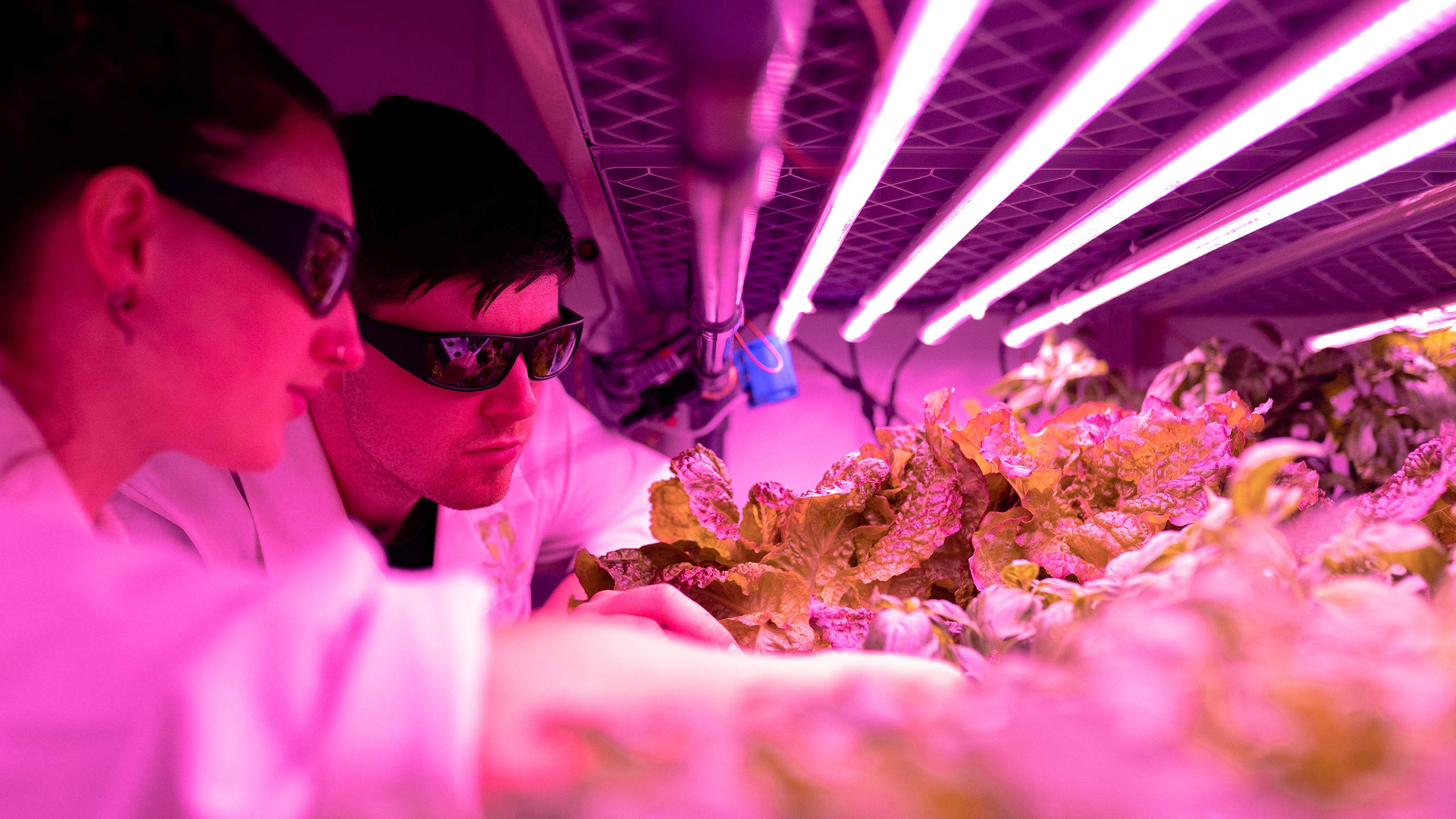
Ian Ashbridge, Agricultural Consultant & Rural Surveyor at Bidwells, says: “AgriTech is an incredibly broad and catch-all term so vast in what it covers that it risks losing meaning. In fact, this next-generation forward-leap in technology and uptake is really an extension of the mechanisation of agriculture that began after the WWII and has continued ever since.
For instance, GPS technology has become widely available in farming over the last 20 years and is now accepted as an automatic part of precision farming – yet it is part of the ongoing AgriTech story. Recent developments in electronic identification of sheep and cattle has become more and more usual. Alongside that, a lot of AgriTech is about the capturing and use of information that already exists on farms but is rarely utilised”.
Jay Wootton elaborates: “For me, AgriTech is a term that straddles two distinct areas of tech – robotics and data. Robotics replaces manual labour with mechanised tech, while data capture allows us to collect and interpret data to manage farming businesses to a greater level of detail than we were previously able to achieve.”
In the fruit and veg sector, where crops are high value and highly perishable, robotic tech could become an important part of the solution to high labour costs. Labour invariably takes up a significant share of fruit and veg farmers’ cost structure, so replacing people with tech is a real step change.
Broad acre farming is much more difficult to make robotic. The dual challenge of huge machinery and, when it comes to the UK, relatively small fields, means robotic tech is sometimes simply not practical. Add to that the fact that UK fields have uneven edges, hedges, trees in the middle, and public footpaths – and you get challenges that robotics would struggle to overcome.
So we have a multi-faceted industry, where the fresh produce sector is set to see robotic tech develop more quickly in highly controlled greenhouses. Conversely, broad acre farming, while enjoying some robotics already, such as guidance systems on tractors, could see this tech developing at a slower pace.
There’s still mechanisation happening. “One area of AgriTech that is moving fast”, says Ian Ashbridge, “is intelligent pesticide application and weeding systems, with software that can identify target weeds to destroy using a limited amount of chemical, or destroy weeds without pesticide use. This is no great advancement on a skillful operator using a tractor-mounted hoe in a crop of sugar beet, but the number of operators is decreasing while becoming more expensive. Robotic weeding becomes even more relevant as fewer and fewer herbicide products are available for farmers to use.”
It is the data side of broad acre, however, that is really fascinating. It all starts with how you collect data. There is, for instance, a lot of work with remote sensing, to gather data and managing crops using satellite imaging. The technology can zoom in to a very high degree and produce high-grade data to help farmers assess the health of their crops, biomass in crops, crop development, ground cover and more.
The one big challenge of using remote sensing? You may have guessed it – it’s cloud cover.
This is where drones come in.
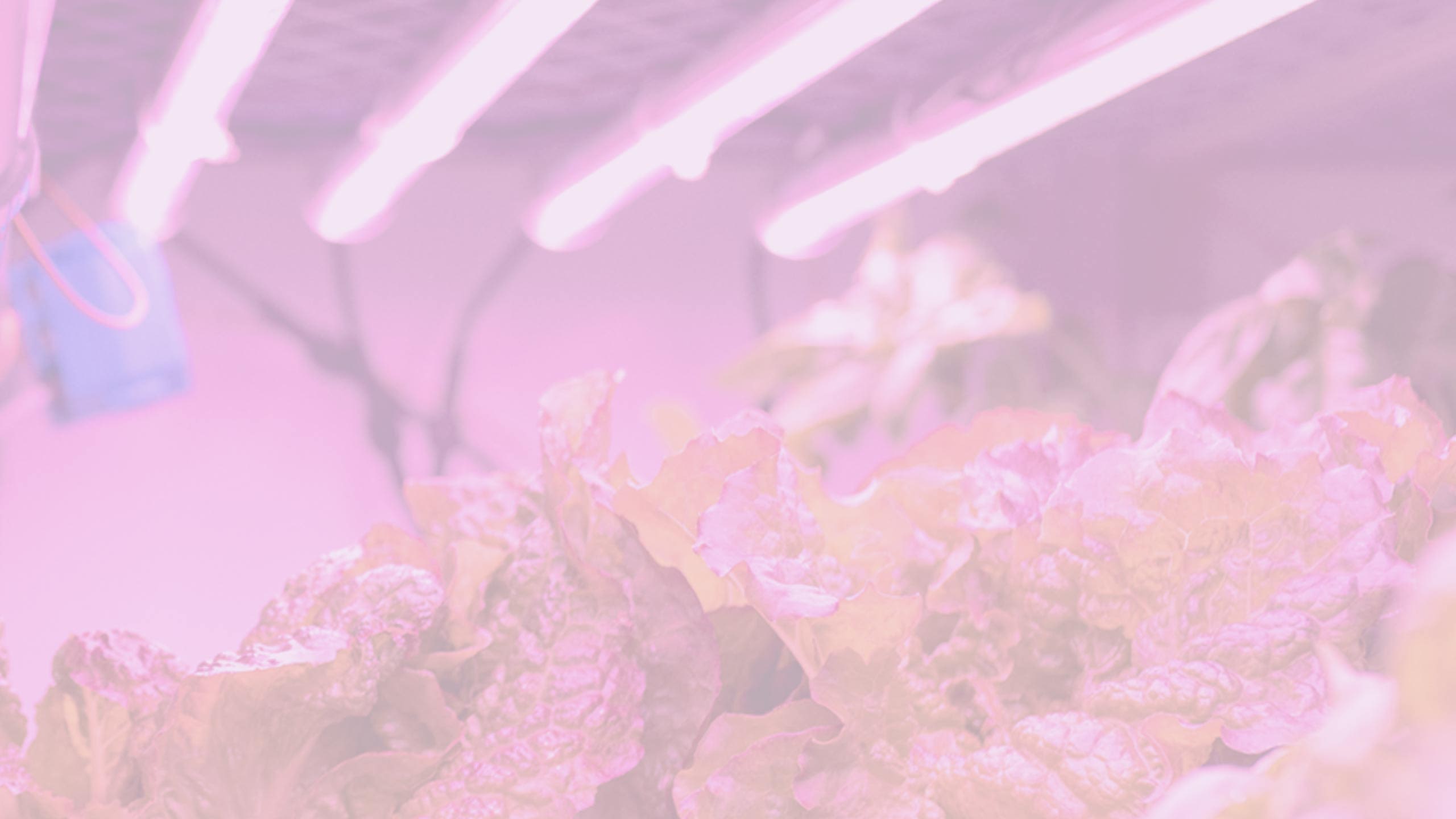

Drone Ag: unlocking drone tech for farmers
A case study

Although many UK farmers recognise the importance of investing in innovation, they often face practical challenges around costs of adoption, platform integration, skills / educational gaps and return on investment. Collaborations with technology providers are key to solving those.
Drone Ag is one such collaboration between farmers, agronomists, drone pilots and software engineers to provide easy-to-use software solutions that help farmers “do more in less time”.
We spoke to the founder Jack Wrangham and chief operations officer Alex Macdonald-Smith to find out what inspired them to develop their latest software Skippy Scout, how it works, the challenges in encouraging adoption and what’s next for the business.
With a background in farming and an aerial media company, Jack was able to combine his knowledge of the sector to unlock the benefits of drone technology for farmers:
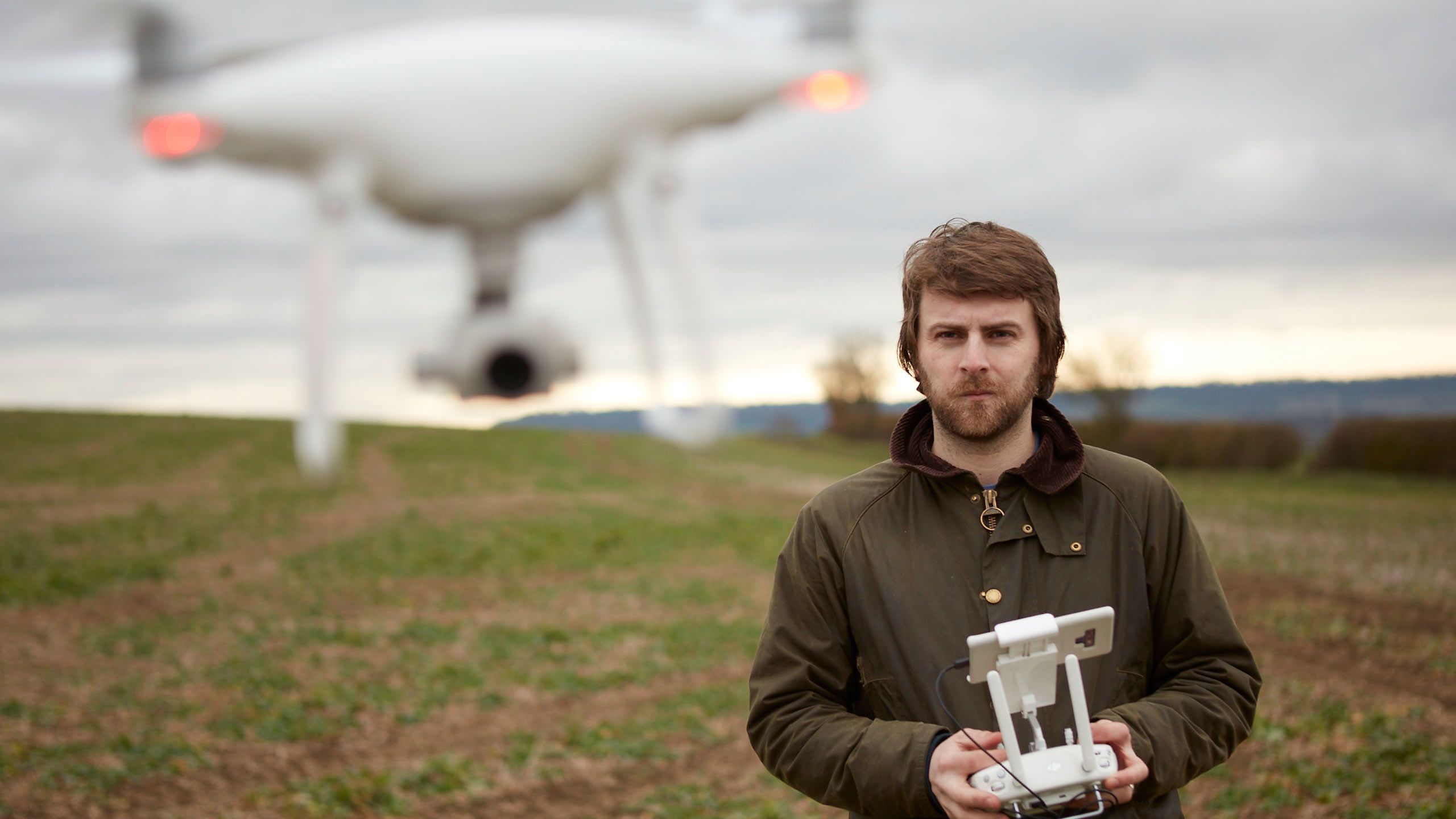
“Farmers were frustrated with their purchases of expensive drone technology that was going unused because of a lack of training and knowledge of how to unlock the potential benefits. We designed Skippy Scout: an AI-enabled mobile app which works with existing drones so farmers can monitor their crops. The platform provides them with meaningful insights so they can make the right decisions much more quickly in real time”.
At the price of a mobile phone contract, Skippy Scout combines drone photography with crop knowledge to produce an app capable of showing a farmer how well their crops are performing. It ameliorates the need for farmers to spend valuable time crop walking as the work can be done using a drone in a fraction of the time.
Alex adds, “Skippy has been designed so farmers don’t need training. It’s easy to use and much faster than crop walking, so any potential problems can be spotted earlier. It works for those farmers that aren’t tech-minded, as it flies itself, gathers the data and then generates the report. For farmers it’s all about efficiency gains. Skippy enables them to see more of their crops in more detail, in less time. They can make decisions faster, identify problems earlier and accurately pinpoint where they need to deploy resources”.
With more than 150 users in 18 countries across over 500 farms, the award-winning company has exciting plans for its future.
Data, the future, and the green challenge
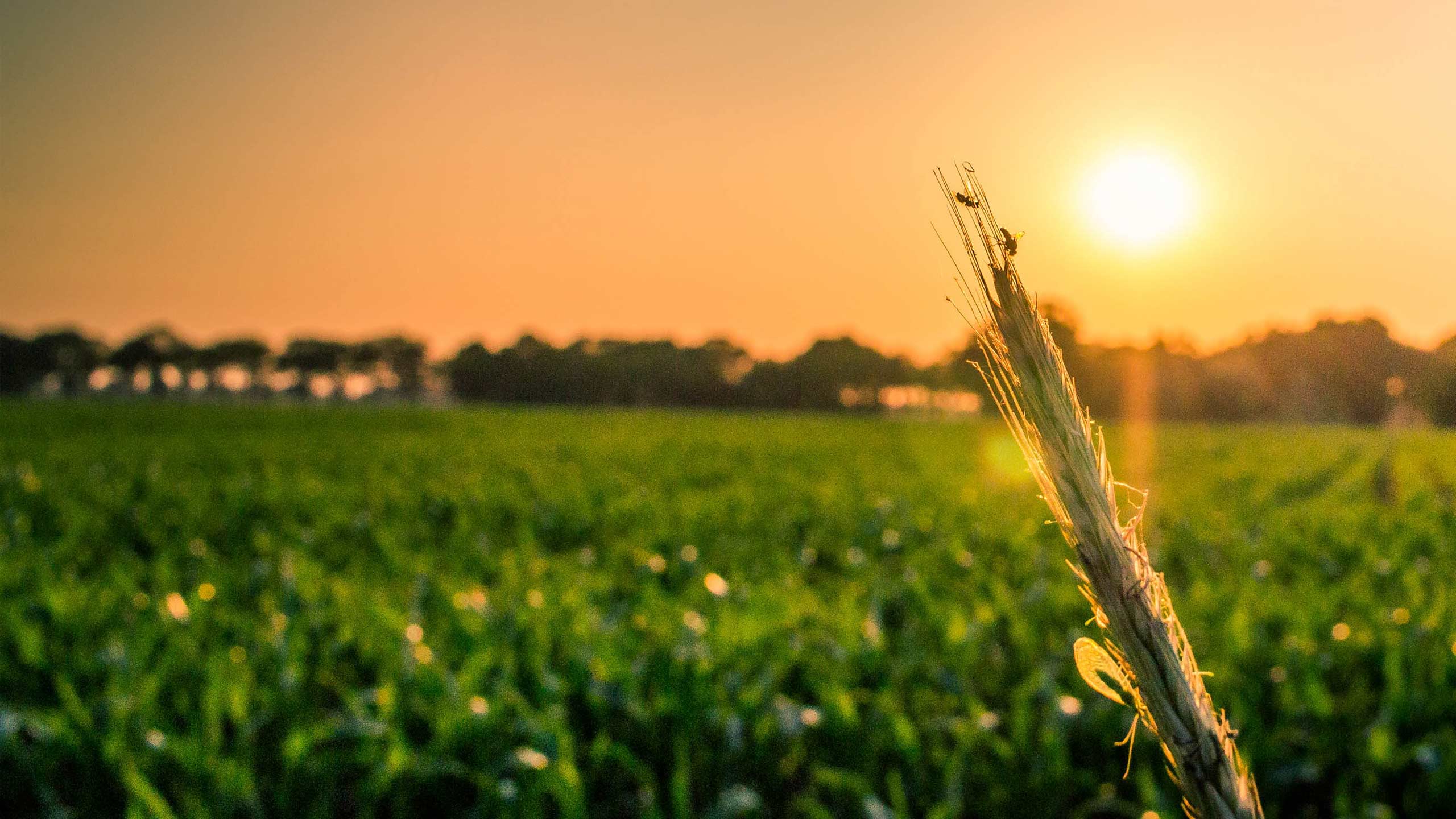
Data capture is an enormous area of opportunity for broad acre arable farming. Whether it’s drones or remote sensing that does the capturing, data results in yield maps and determines what the best and most profitable parts of the field – or the whole farm - are.
Ian Ashbridge comments: “We still routinely see as many crop yield records written longhand on notepads and in combine cabs as we do in spreadsheets or on bespoke farm management software.
A lot of the more recent developments in the data side of AgriTech are about using new technology like AI or machine learning to bring together farm software systems which have quite separate and non-aligned purposes.
It remains the holy grail in arable farming for someone to develop a piece of software that can record all machinery movement, field applications, manage stock and simultaneously be an effective financial management and accounting tool.
There are plenty of new and exciting businesses making strides around capturing and benchmarking farm data – and their customers are not restricted to farmers.”

The green challenge
There’s more ‘green’ tech being developed in farming to tackle issues around reducing carbon reduction issues and replacing fossil fuels, and map and manage ‘natural capital’ such hedgerows, trees, peat bogs, moorlands, old grasslands etc.
The Government is well aware of the need to incentivise ‘green’ tech in farming. In addition to the existing grant schemes such as the Farming Investment Fund which stimulates investment into new technology and equipment, this month [January 2022] the Government announced that farmers would be given cash to rewild their land, under plans for large-scale nature recovery projects. This initiative is designed to create vast tracts of land being managed to conserve species, provide habitats for wildlife and restore health to rivers and streams.
By 2042, the Government aims to have up to 300,000 hectares of England covered by such “landscape recovery” projects. Data capture tech will play a crucial part in helping farming businesses assess their land and select plots best suited for rewilding.
Angus Williams, Agriculture Partner at RWK Goodman, comments: “There is no doubt that farmers who have embraced AgriTech are seeing efficiencies, increased yields and profits. But does AgriTech have the potential to increase the value of land? Using digital tools, farmers are able to make more informed decisions based on data as opposed to their gut instinct. In the long term they can make their land more productive and valuable by improving the efficiency of water and build sustainability and resilience. Smart monitoring of their crops can also help farmers maximise the revenue by optimising the harvesting window”.

Where to next?
The emergence of technologies enabled by artificial intelligence, machine learning, robotics, Internet of Things, and cloud computing will doubtless continue playing its part in shaping UK farms and their future. It’s the savvy farmers who can effectively leverage and unlock the benefits from these technologies that will survive – and succeed.
"...innovation in agriculture continues to evolve, and there is no doubt that what are now only emerging ideas will become far more mainstream..."
It’s important to take a measured approach. With just one production cycle and effectively just one attempt at innovation per year, AgriTech will move at its own pace. There won’t be robots in our fields tomorrow, and we are likely still over 10 years away from solving problems in fruit and veg farming with tech. However, the excitement is there and new technologies emerge at pace; what we don’t yet know is which technologies are here to stay and which will prove to have been interim solutions.
Ian Ashbridge says: “In 20 years’ time farmers will likely look back at some of the technology we use today as hopelessly outdated. But innovation in agriculture continues to evolve, and there is no doubt that what are now only emerging ideas will become far more mainstream in producing food and energy more sustainably.”
With thanks to our expert contributors
Andersons, Bidwells, Drone Ag

